1. Water Purification
2. Air Conveyor Bottle Handling
3. 3 In 1 Washing Filling Capping
4. Labeling
5. Packaging
6. Quality Control
In the modern beverage industry, water bottling machines play a crucial role in delivering clean and safe drinking water to consumers. These water bottling machines are responsible for efficiently purifying, filling, capping, and labeling bottles with precision. Understanding the fundamental working principle of our water bottling machine helps consumers appreciate the technology behind the process and ensures the production of high-quality bottled water.
1. Water Purification
The process begins with the purification of water. Raw water is sourced and then subjected to a comprehensive purification process, which typically includes the following steps:
Filtration: Raw water is passed through various filters to remove large particles, sediments, and impurities.
Reverse Osmosis: In this stage, water is forced through a semipermeable membrane to remove dissolved solids, salts, and contaminants.
Disinfection: To ensure the water is safe for consumption, it is treated with disinfectants like chlorine or UV light to eliminate any remaining bacteria or microorganisms.
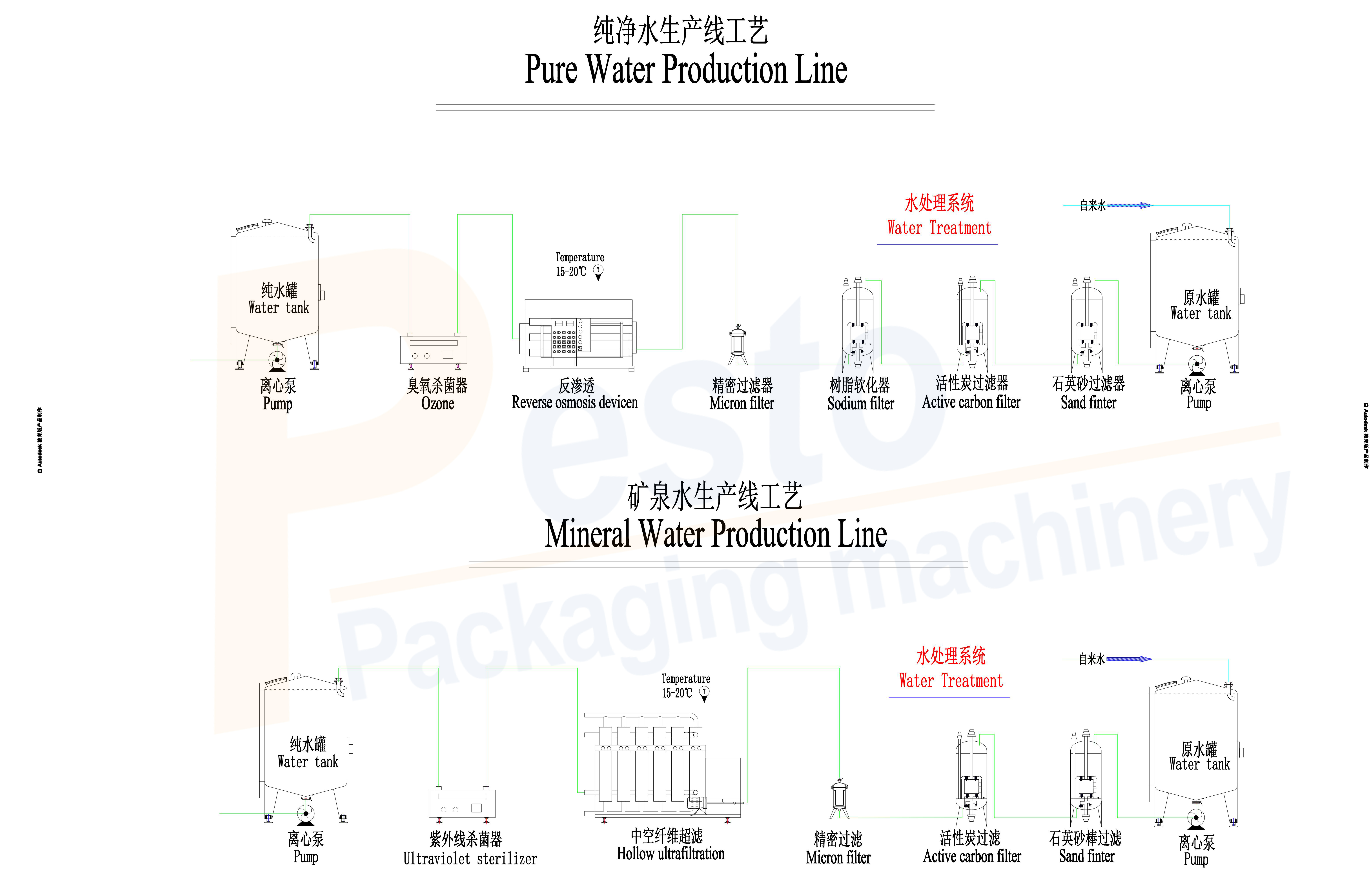
2. Air Conveyor Bottle Handling
Empty bottles are initially loaded onto the air conveyor system. This can be done manually or through an automated loading station. The flow and pressure of the air can be precisely controlled, allowing for adjustments to accommodate different bottle sizes, shapes, and weights. This level of customization ensures that bottles are transported smoothly and securely. Air conveyors are known for their sanitary and hygienic operation. They are easy to clean and maintain, reducing the risk of contamination in the production process. Air conveyor systems can be easily adapted to accommodate different bottle shapes and sizes. This flexibility makes them ideal for companies producing a variety of beverages.
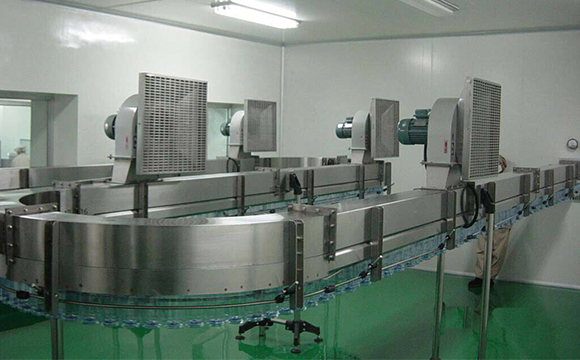
3. 3 In 1 Washing Filling Capping
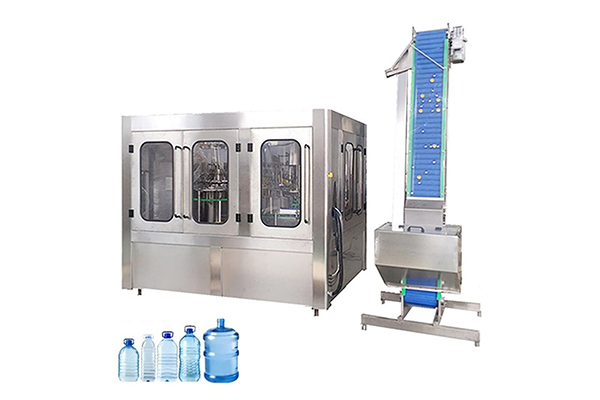
Working Principle
The working principle of the 3 in 1 water filling machine for sale is to seamlessly integrate three essential functions: washing, filling, and capping. Here's how it works:
Bottle Washing: Empty bottles are first transported to the washing station. The machine employs a series of high-pressure jets and brushes to thoroughly clean the bottles, removing any contaminants or impurities.
Filling: After washing, the cleaned bottles are moved to the filling station. Precise filling valves ensure that the correct amount of water is dispensed into each bottle. The filling process can utilize various technologies, including gravity filling, pressure filling, or vacuum filling, depending on the specific product requirements.
Capping: Once filled, the bottles are transferred to the capping station. Here, caps or closures are securely placed on the bottles to prevent contamination and maintain product freshness. Different types of caps, such as screw caps or snap caps, can be used depending on the bottle and product type.
The entire process is carefully controlled by automated systems and sensors to ensure consistent product quality, accurate filling levels, and the prevention of any spillage or contamination.
Production Capacity Selection
Selecting the appropriate production capacity for the 3 in 1 water filling machine is crucial to meet your specific manufacturing needs. Here are some considerations:
Production Volume: Determine your required production volume. These machines come in various sizes and capacities, from small-scale models suitable for startups to high-capacity units suitable for large-scale production. Ensure that the chosen machine can meet your daily or hourly production targets.
Bottle Size and Type: Consider the types and sizes of bottles you plan to use. Ensure that the machine is equipped to handle various bottle shapes and sizes, as versatility in bottle handling is essential for meeting customer preferences.
Automation Level: Decide on the level of automation you require. Machines range from semi-automatic to fully automatic. The level of automation impacts labor requirements and production efficiency.
Quality Control: Look for machines that offer precise control over filling levels, cap placement, and sealing to ensure consistent product quality. This is particularly important for maintaining brand reputation.
Budget: Determine your budget constraints and select a machine that offers the best value within your financial capacity. Keep in mind that investing in a reliable machine can lead to long-term cost savings.
Future Growth: Consider your future expansion plans. Choose a machine that allows for scalability, so it can accommodate increased production demands as your business grows.
We have different production capacity selection for small-scale, middle-scale, and large-scale water bottling machines depends on your specific production requirements, market demand, and budget.
Our Product Range
Small-Scale Water Bottling Machine
Small-scale water bottling machines are designed for low to moderate production volumes. They typically produce anywhere from 2000-3000 bottles per hour. Our small water bottling machine is compact and space-efficient, making it suitable for smaller facilities and startups with limited space. Small-scale water bottling machines require some manual labor or semi automatic type, such as bottle blowing, bottle loading, labeling and packing. Small-scale machines are more budget-friendly, making them an excellent choice for new businesses with limited capital.Smaller machines are easier to operate and maintain.
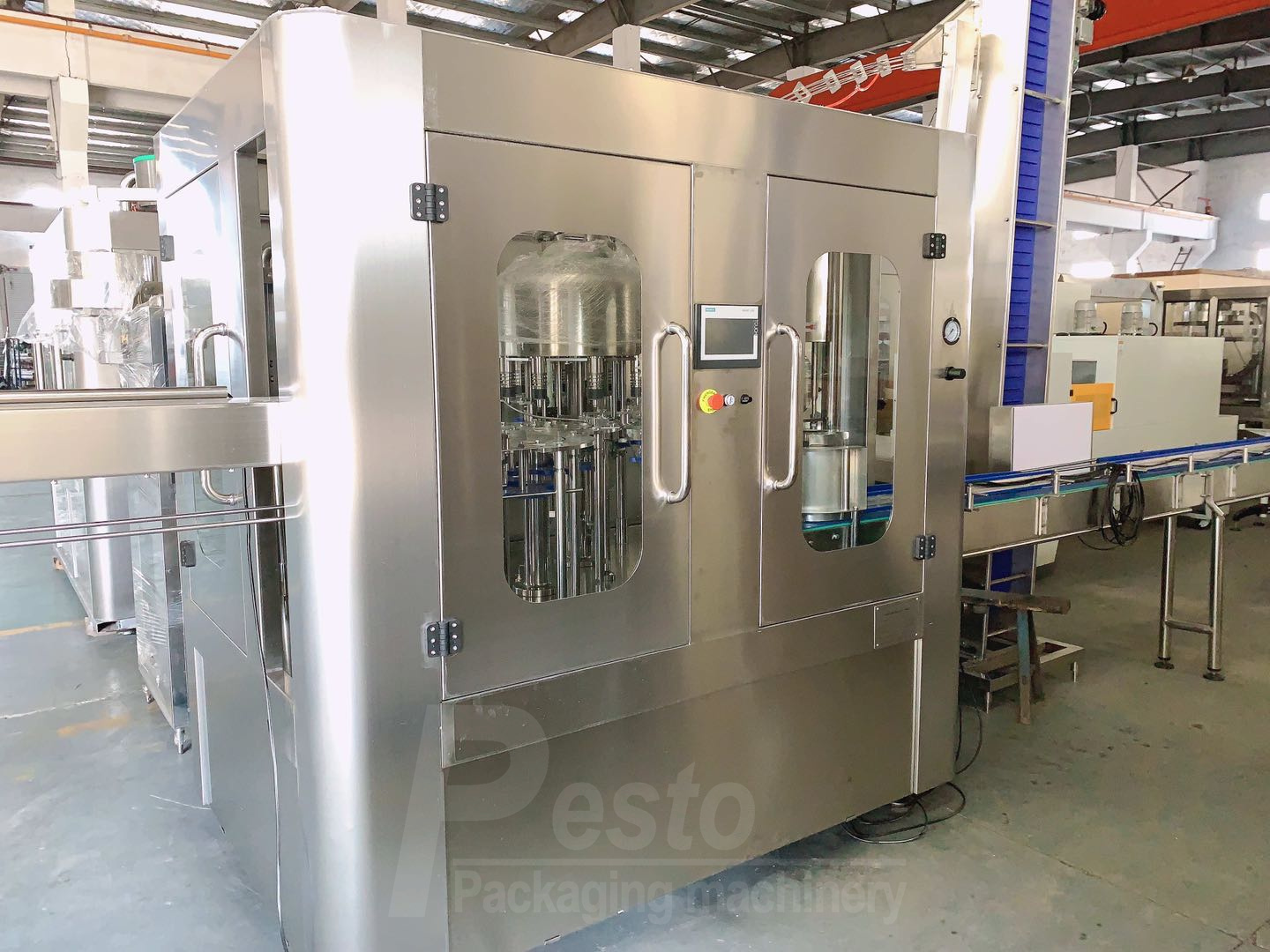
Middle-Scale Water Bottling Machine
Middle-scale water bottling machine for sale is designed for moderate to high production volumes, typically ranging from 10,000 to 15,000 bottles per hour. They have a moderate-sized footprint and are suitable for medium-sized production facilities.Depending on the model, middle-scale water bottle filling machine offers semi-automatic or fully automatic operations. Middle-scale machines strike a balance between production capacity and cost, making them suitable for growing businesses.They can significantly reduce labor requirements and increase production efficiency compared to small-scale machines.
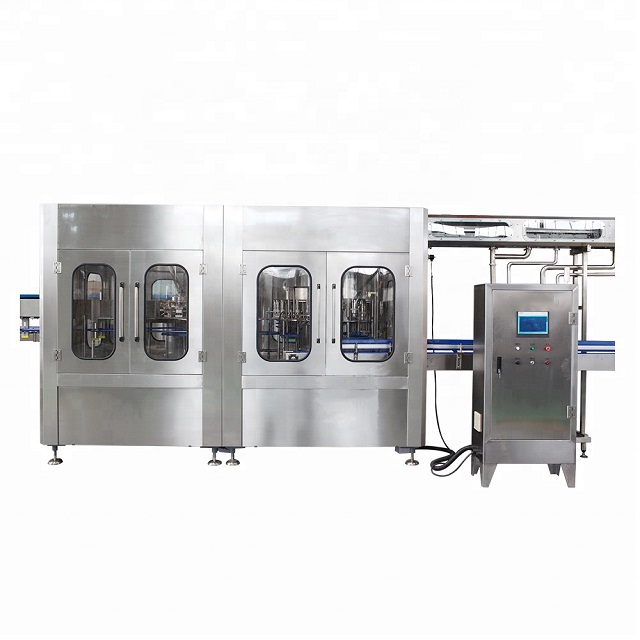
Large-Scale Water Bottling Machine
Large-scale machines are designed for high-volume production, capable of producing more than 20,000 bottles per hour. They require a substantial amount of floor space and are typically found in large-scale production facilities.Our large-scale water bottling plant for sale is fully automated, requiring minimal manual intervention.Large-scale machines offer the highest level of production efficiency, reducing labor costs and maximizing output. They can handle substantial production increases without the need for significant additional equipment.

4. Labeling
After capping, bottles are transported to the labeling section of the machine. Labels are accurately applied to the bottles, providing essential information such as product branding, nutritional facts, and expiration dates. Labeling can be done through adhesive labels or shrink sleeves or opp labels.
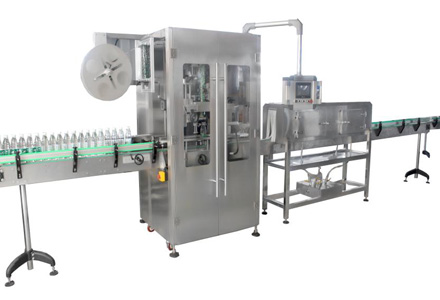
5. Packaging
The final step involves packaging the filled and labeled bottles into cases or cartons for distribution.
Understanding the working principle of a water bottling machine highlights the precision and efficiency involved in producing bottled water. This technology ensures that consumers receive safe, high-quality drinking water, meeting the demand for clean and convenient hydration in today's fast-paced world. Packing can be done through pe film packing or carton packing.
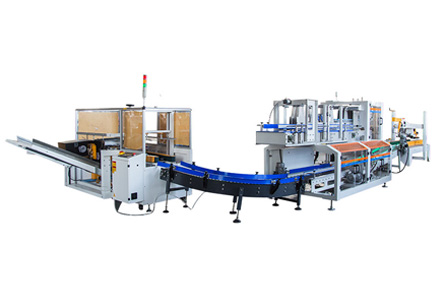
6. Quality Control
Throughout the process, water bottling machines incorporate quality control mechanisms to ensure the filled bottles meet stringent standards. Sensors and cameras may be used to detect any irregularities, such as underfilled bottles or labeling errors.
Understanding the working principle of a water bottling machine highlights the precision and efficiency involved in producing bottled water. This technology ensures that consumers receive safe, high-quality drinking water, meeting the demand for clean and convenient hydration in today's fast-paced world.
English
العربية
Français
Русский
Español
Português
Tiếng Việt
ไทย
Polski
Türkçe
አማርኛ
ဗမာစာ
தமிழ்
Filipino
Bahasa Indonesia
magyar
Română
қазақ
हिन्दी
فارسی
Kiswahili
українська
Հայերեն
עברית
বাংলা
සිංහල
Oʻzbekcha
Azərbaycan dili
Български
ქართული
guarani
ગુજરાતી
Hausa
Igbo
ಕನ್ನಡ
Kinyarwanda
Kurdî
Кыргызча
Oluganda
മലയാളം
मराठी
Afaan Oromoo
ਪੰਜਾਬੀ
Runasimi
chiShona
Soomaali
Тоҷикӣ
తెలుగు
ትግንያውያን
Türkmençe
Yorùbá
isiZulu


















